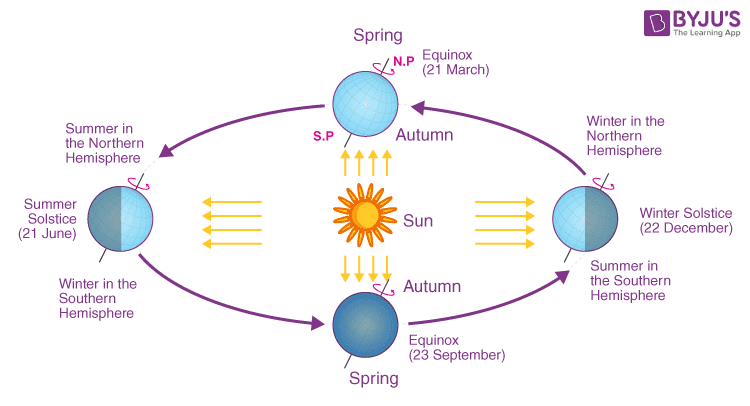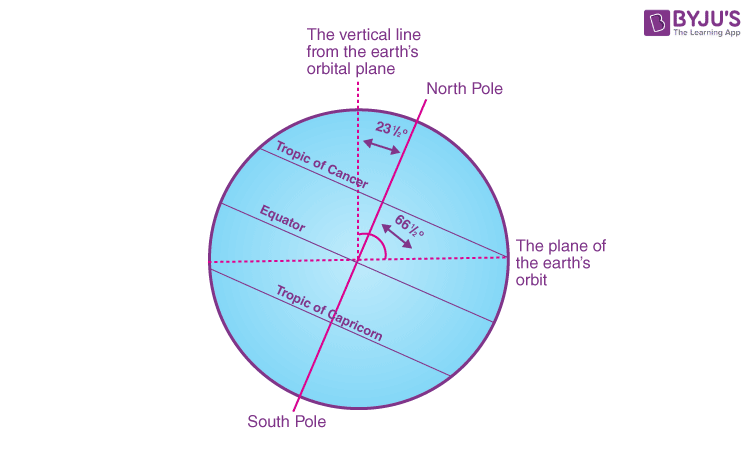The difference between solstice and equinox is provided below in tabular format. But before learning the difference, one must understand the basic concept of equinox and solstice.
Equinox and Solstice

Equinox refers to a day with an equal duration of day and night. We have two equinoxes in a year which are:
- Spring equinox on March 21
- Autumnal equinox on September 23
On the other hand, the solstice refers to a day with either the longest day or the shortest. The two solstices in a year are:
- Winter solstice on December 22
- Summer solstice on June 21
Inclination of Earth’s Axis and Orbital Plane
As the earth orbits around the sun in an elliptical path, its tilted axis (an axis that’s tilted 23 degrees with respect to the vertical line from the earth’s orbital plane) results in the sunlight reaching the earth’s surface at various angles. This is the reason why the length of days and nights vary and are not the same anywhere in the world.

Let us understand the differences between equinox and solstice in detail by referring to the table below.
Equinox vs Solstice
| Equinox | Solstice |
| Time of the year when the sun is nearest to the equatorial plane giving equal lengths of day and night. | Time of the year when the sun is farthest from the equatorial plane resulting in long nights and days. |
| An equinox occurs at the start of the spring and fall. | The solstice occurs during the summer and the winter. |
| Occurs on March 21 (Vernal equinox) and on September 23 (Autumnal equinox). | Occurs on June 21(Summer Solstice) and on Dec 22 (Winter Solstice). |
The listed were a few differences between solstice and equinox. While the solstices result in a change of the length of night and day, the equinoxes do not. The summer and winter solstices result in the longest and shortest day of the year respectively while the equinoxes result in an equal amount of daylight and darkness received all across the earth.
Also Read:
| Difference Between Asteroid and Comet | Difference Between Meteor and Meteorite |
| Difference Between Asteroid and Meteoroid | Celestial Bodies |
Stay tuned with BYJU’S interesting physics topics like Minkowski space, the origins of the universe, etc. with the help of interactive and engaging video lessons.

Comments